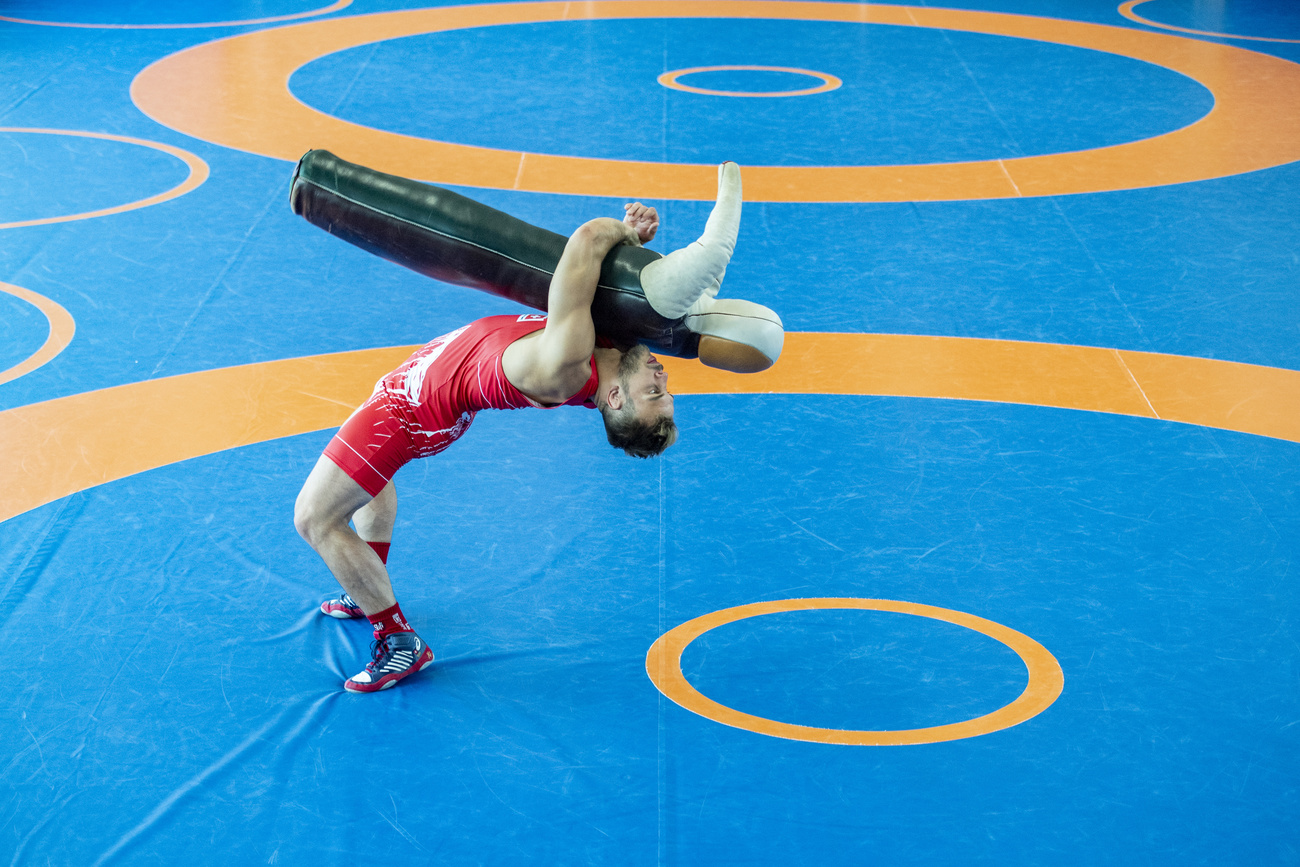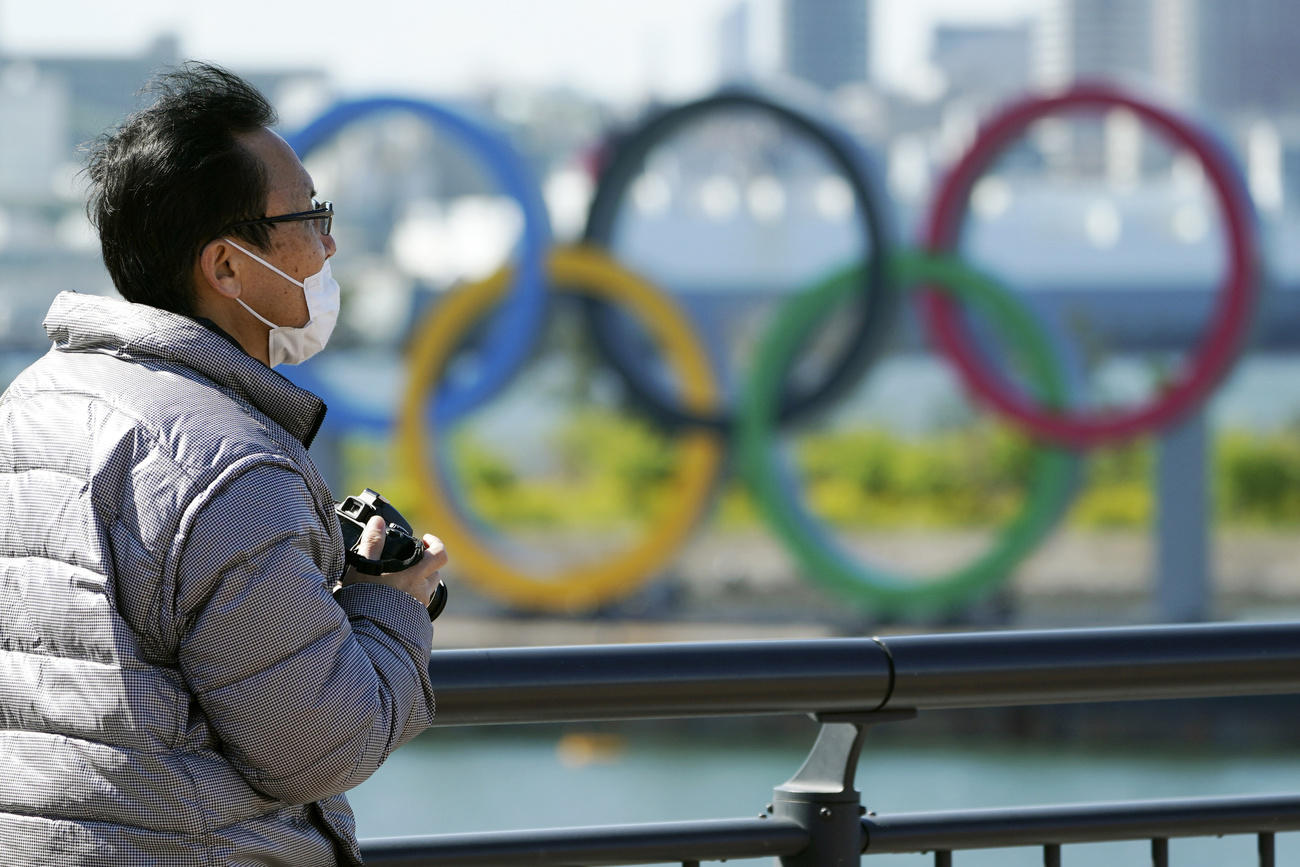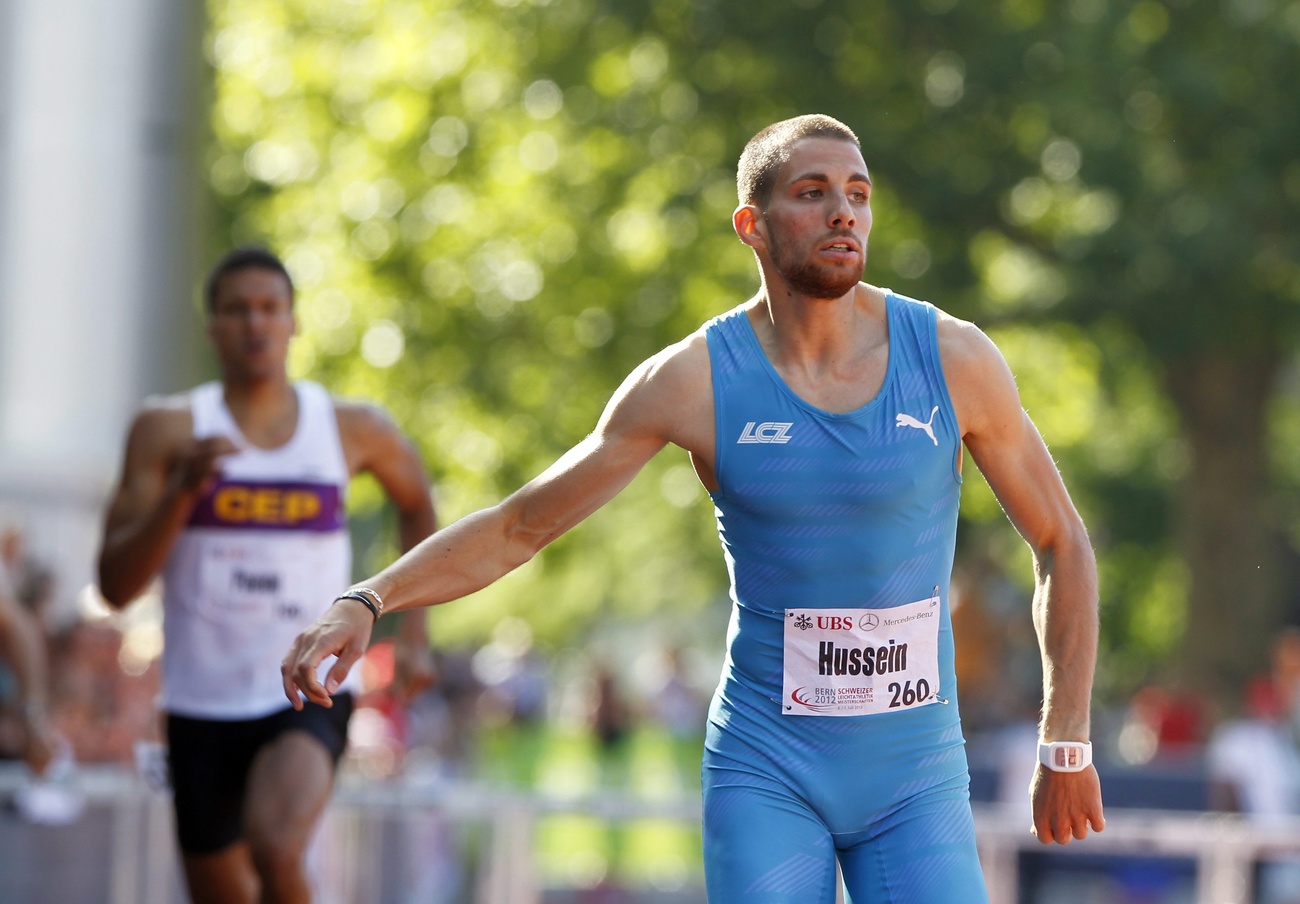‘Japan suits us,’ says Swiss Olympic president

As the Tokyo Olympic Games begin, Jürg Stahl, president of Swiss Olympic, discusses expectations, local opposition and whether the tournament should even be taking place.
In an interview with the Keystone-SDA Swiss News Agency, Stahl said the Lausanne-based International Olympic Committee (IOC) was reacting to the Covid-19 pandemic more sensibly than European football’s governing body UEFA did at the recent European Championships. He also addressed plans to further relax Covid measures for athletes and fans in Switzerland in the autumn.
SDA: Japan isn’t a bad place for Switzerland, looking back at previous Olympic Games…
Jürg Stahl: Absolutely. I was only four when we experienced the golden days of Sapporo in 1972 [when Switzerland came third in the medal table at the Winter Olympics]. That really shaped the [following] generation, to which I belong. As for the first Games in Tokyo eight years earlier, […] back then it took the dressage team 60 hours to fly there, including five stopovers. It was an enormous effort, but it was worth it [the dressage riders won silver]. When I look back on those two Games, I can say “Japan suits us”. The Japanese are generally quite similar to us, technologically, in terms of innovation, even on a human level with their certain reserve. The omens are good.
The 2020 Summer Olympic Games are being held in Tokyo, Japan, from July 23 to August 8.
116 athletes are representing Switzerland in Tokyo, 11 more than five years ago in Rio.
30 are competing in athletics; in no other sport are more Swiss taking part.
Only one Swiss Olympic champion from Rio is also taking part in Tokyo: mountain biker Nino Schurter.
The oldest Swiss participant is shooter Heidi Diethelm Gerber (52). The youngest is swimmer Antonio Djakovic (19).
What exactly do you expect from the Swiss squad?
The main hope is that everyone returns home healthy, but also that we win many medals, which would have a lasting effect. The Covid-19 pandemic has really shaken sport – and Switzerland has been rattled by ethical issues [notably corruption at Zurich-based FIFA]. That’s why it’s important that we can respond on the track or field and give something back to the fans and families who have to stay at home, and that the electrifying Olympic effect reaches into living rooms.
And on the sporting front?
The conditions are certainly good for us to match the excellent Rio Games. Five years ago we won seven medals in six sports. We also have this breadth in Tokyo. We have at least one medal hope in almost all the events in which we’re taking part. The Swiss sports federations and their clubs are doing an excellent job. The interplay between recreational, junior and elite sport is the most important thing; success is only possible in this “triangle”.

How happy are you that after the difficult past few months it’s now all about sport again – even if the pandemic obviously can’t be ignored in Tokyo?
After the shock-induced paralysis at the beginning of the pandemic, the first loosening of measures last summer and the setback in autumn, competitive sport reacted well – not only in Switzerland. Relatively quickly there were safe and fair championships and title competitions again. That made the athletes confident, and that’s why I’m happy above all for them, that they can compete at the Games.
According to surveys, the majority of the Japanese population is against holding the Games now. Is it right to hold the Games?
Yes. Postponing the Games [originally scheduled for 2020] was a viable option and much better for everyone involved than cancelling them.
Why?
If you had no Olympic Games for eight years, sport would lose a lot. We’ve seen its importance over the past year. I have great sympathy for every Japanese who is afraid and sceptical about the Games. But the IOC is reacting prudently, more prudently than UEFA, for example, with the European Football Championship, where they probably went overboard with all the travelling and the full stadiums. Going from 0 to 100 doesn’t work – what’s important is returning to normality step by step. The athletes are very careful, but the whole Olympic environment is also aware of the responsibility.

More
Japan and IOC agree to one-year delay to Tokyo 2020 Games
Over the past few months sport has increasingly become the focus of political and social attention. How sustainable is that?
If we get it right, sport has great potential to achieve this sustainability. There are two aspects. On the one hand, the need for exercise is central for people. On the other, there is the emotional component. Sport is more than exercise. The sports club, for example, gained in importance as an element in society the moment it was suddenly no longer there during the pandemic. We have to take these insights with us.
Further loosening of pandemic measures in sport is planned in autumn. Covid cases are now rising again. Could sport be facing a new setback?
I don’t think so. We can say, backed up by facts, that with the relaxations in early summer last year sport was not a driver of the second wave. Athletes are used to accepting rules. That’s why they’ve been able to cope well with the measures. It didn’t work when it degenerated into celebrations and suddenly all the dams broke. But in normal training and competition it was no problem. That motivates us to […] try to open things up. But everyone must continue to take their own responsibility.
More
Sport as a role model, then?
Sport has the ability to build bridges in society. I can’t think of anything better than sport to let people just switch off and be happy about something, also when times are tough. We long for the joie de vivre that sport can bring after being deprived of it.
(Adapted from German by Thomas Stephens)

More
Olympic Games: when the dream becomes a nightmare

In compliance with the JTI standards
More: SWI swissinfo.ch certified by the Journalism Trust Initiative










Join the conversation!